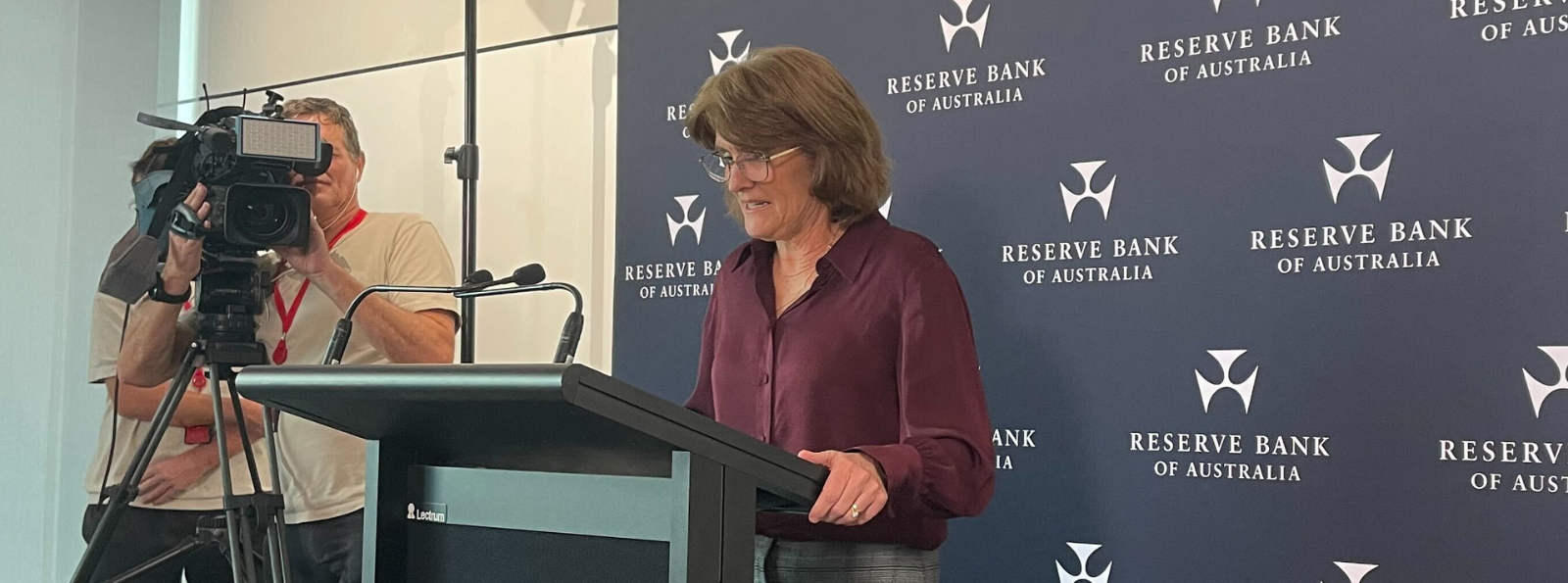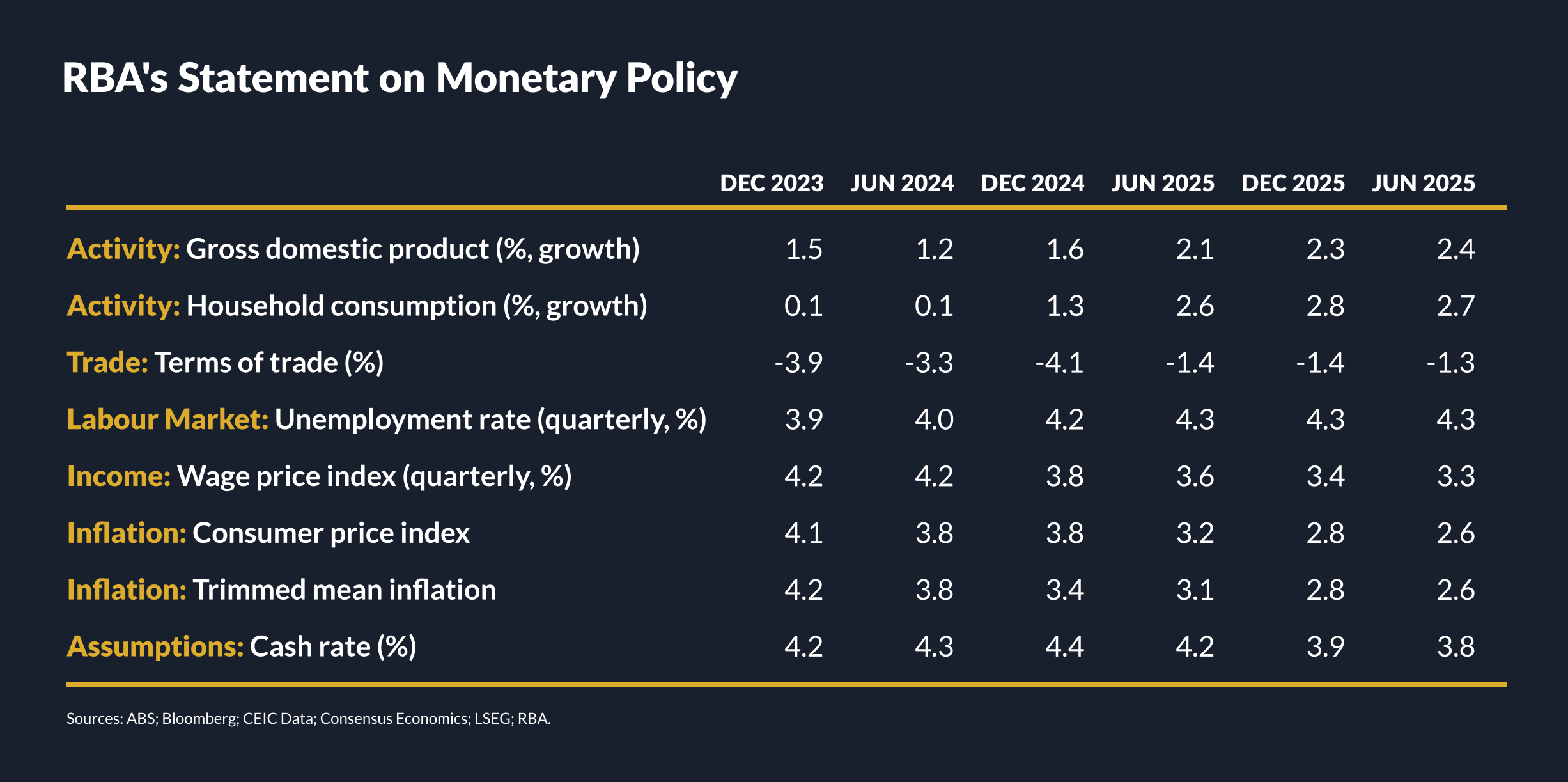The RBA holds interest rates at 4.35% - but will it rule anything in or out?
The Reserve Bank of Australia kept interest rates on hold for the fourth straight meeting today, in a move that was priced by just about every economist and their dog.
Though markets now know the news in such announcements isn't in the actual rate move, but in the language. Just a single sentence is now enough to cause a massive shift in interest rate expectations – and that has immediate implications for all asset classes.
At its last meeting in March, the Reserve Bank said:
"The path of interest rates that will best ensure that inflation returns to target in a reasonable timeframe remains uncertain and the Board is not ruling anything in or out."
The shift in language was widely seen as one that went from hawkish to neutral, a sign that the RBA was starting to have a little more confidence that it was finally winning the war against inflation.
But after the Q1 inflation print, which showed an uptick in all major measures and a small loosening in the jobs market, investors are now asking whether the economy has changed yet again.
Livewire was once again in the room, asking the RBA Governor the tough questions. In this wire, we'll aim to discover if the RBA is any closer to deciding whether the next move will still be down - or indeed - up.
The key takeaways
First up, here are some of the key lines we are watching from the statement itself. And brace yourself because there are quite a few!
1) "The path of interest rates that will best ensure that inflation returns to target in a reasonable timeframe remains uncertain and the Board is not ruling anything in or out."
This is the biggest non-change. Despite questions over whether a language change was coming, the RBA has maintained its most crucial line in the last paragraph.
2) "In the near term, inflation is forecast to be higher because of the recent rise in domestic petrol prices, and higher than expected services price inflation, which is now forecast to decline more slowly over the rest of the year."
This is the first of two big changes. The last mile to get inflation down is the hardest and the RBA is now acknowledging that it underestimated how difficult it will be to get inflation down to target. Six weeks ago, they said the decline was still within their forecasts. Now, it isn't.
3) "Recent data indicate that, while inflation is easing, it is doing so more slowly than previously expected"
The same as above, but in a different paragraph.
4) "Real incomes have now stabilised and are expected to grow later in the year, supporting growth in consumption. But there is a risk that household consumption picks up more slowly than expected, resulting in continued subdued output growth and a noticeable deterioration in the labour market."
The RBA has used the first half of this line in previous meeting statements (including the last meeting in March). But there is a new second half of this line, which acknowledges that consumption (through retail sales data) may take a while to pick back up. If that happens, watch for GDP growth to contract and Australia to fall even further into a per-capita recession.
What we asked the Governor

This was the question that our own Ally Selby asked the Governor:
There’s been a change in tune between your statements in March and May. Back then, inflation was moderating in line with forecasts and there were encouraging signs that inflation was moderating. Now, inflation is declining slower than expected. Given these omissions, would you agree the board is significantly more concerned about inflation than it was six weeks ago - and if that’s the case, why not hike today?
This was the Governor's response:
"Let's just take a step back a little bit and think back to November last year when we raised interest rates. At the time, we felt the risks had shifted a little bit to the upside and we were taking out a little bit of insurance.
It's true that the data towards the end of last year and early this year led everyone to sort of think, oh it's ok.
I think we've always felt that it was a bit too soon to declare victory and I think the numbers in recent weeks have demonstrated that for us, we think policy is restrictive. We don't think we necessarily have to tighten again. But we can't rule it out. If we have to, we will. If we really think that inflation is going to be persistent and significantly above our forecast, we will tighten again.
But the board made the judgment at the meeting that the right stance at the moment is to stay where we are continuing to observe what's going on in the economy. We are data-driven. And as I said, we might have to raise, we might not.
And yes, they did discuss the option to raise interest rates.
3 last takeaways: the Statement on Monetary Policy

The new framework for the RBA means the Statement on Monetary Policy, which contains the Bank's economists' projections for the Australian economy. Some major things stick out:
- GDP growth has been revised down, with that "household consumption" line looking very unhappy indeed.
- The unemployment rate is likely to tick up, albeit not by much. Wages growth has likely peaked but trimmed mean inflation could remain stubborn and above target for as long as another year.
- The cash rate forecast for the end of the year is a little higher than at present. But with the difference being just 5 basis points (4.4% vs 4.35% currently), it suggests the RBA doesn't really know what the next move is. But if its own economists had to hazard a forecast, the next move would be higher.
What would you like to ask the Governor? Let us know and we could use it as inspiration for a future question.
2 topics
2 contributors mentioned

